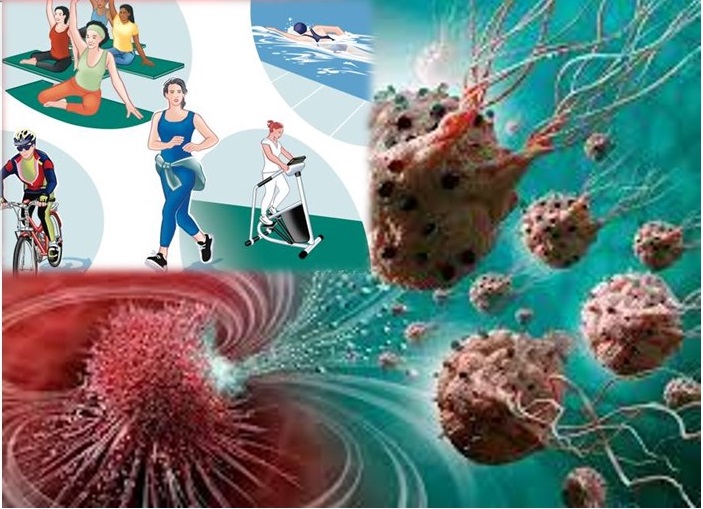LOW PHYSICAL ACTIVITY AS A RISK FACTOR FOR CANCER

According to the WHO, 3.2 million people die each year from lack of physical activity. Scientific research estimates that people have been moving 96% less over the past 100 years. The risk of sudden death in inactive people is 20-30% higher than in those who are more physically active.
A sedentary lifestyle (hypodynamia) appears to be a risk factor for non-communicable chronic diseases such as colon and breast cancer, bladder, kidney, lung, uterine, type 2 diabetes, coronary heart disease, obesity, hypertension, osteoporosis, etc.
Hypodynamia is often associated with an unhealthy lifestyle or sedentary work, except for forced reasons (disability, prolonged illness).
How does hypodynamia manifest itself?
- fatigue,
- rapid fatigue,
- decreased ability to work,
- sleep deprivation,
- excessive unreasonable nervousness,
- regular headaches of varying intensity,
- increased risk of fractures,
- increased body weight,
- shortness of breath with little exercise,
- back pain
What is the result of hypodynamia?
- loss of strength performance,
- muscle volume and mass reduction,
- impairment of nerve-reflex communication,
- vascular dystonia,
- depressed states
Physical activity recommendations:
Experts from the WHO recommend 150 minutes of mild activity (walking, yoga and lawn mowing, etc.) or 75 minutes of vigorous exercises (running or jogging, brisk biking and swimming) per week. A combination of both is preferable.
On average, one should exercise for 30 minutes a day. If it is difficult to exercise for half an hour in a row, it is possible to divide the load into two sets of 15 minutes or three sets of 10 minutes.
If you haven't exercised before and you have a sedentary lifestyle, start small and gradually increase the level of activity. When working while sitting, try to get up every hour and move around (light exercise, breathing exercises, walking) for at least a couple of minutes, or better yet 5-7 minutes.
What do you end up with?
Numerous studies have proven that regular moderate physical activity helps reduce the risk of the above diseases, including cancer. Exercising regularly (aerobic and strength training), as well as flexibility and balance exercises, has a positive effect on both mental and physical health.
Remember!
By increasing your physical activity you are making an invaluable contribution to your health!




